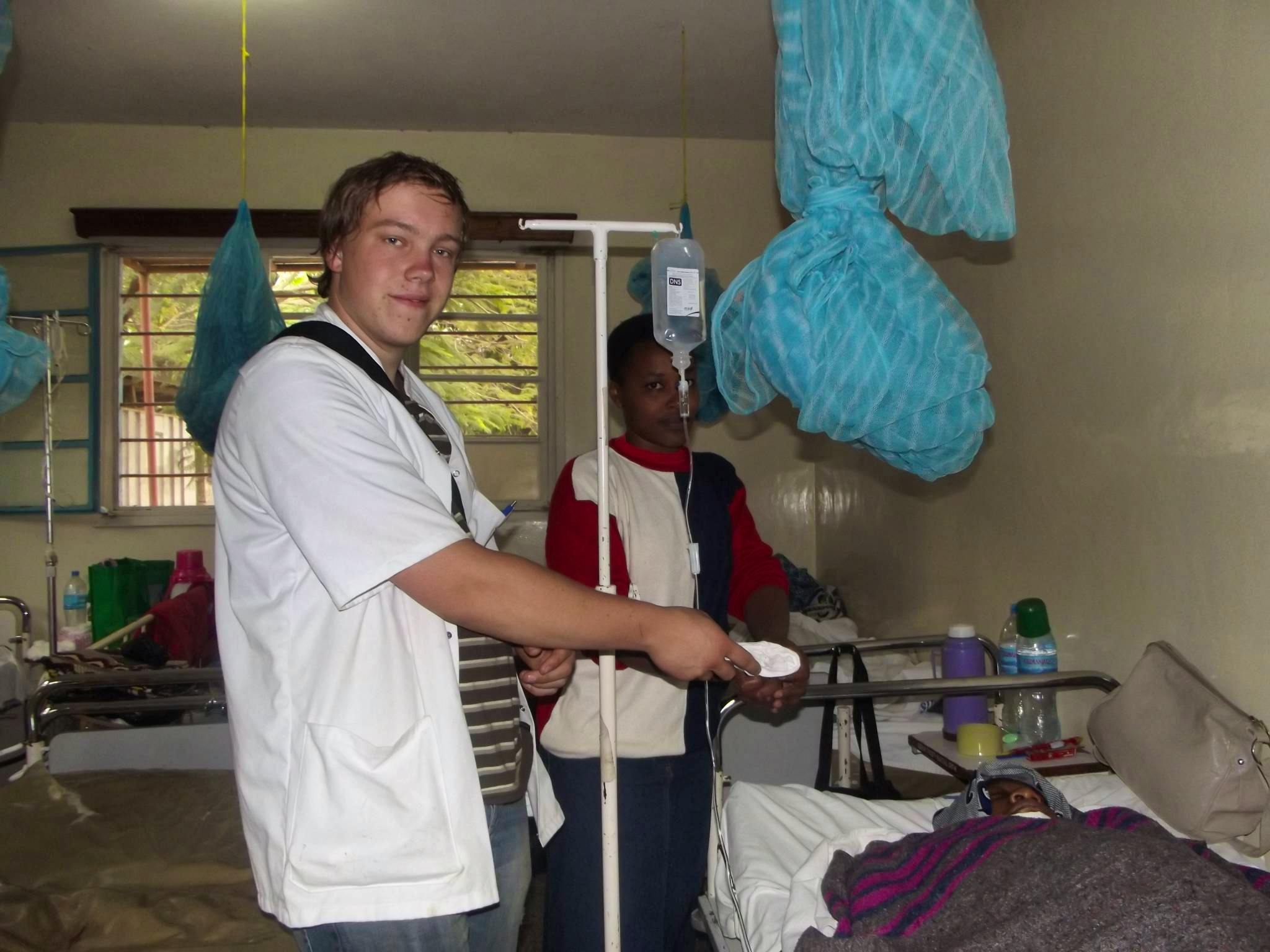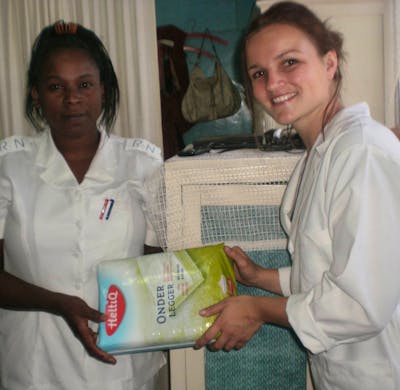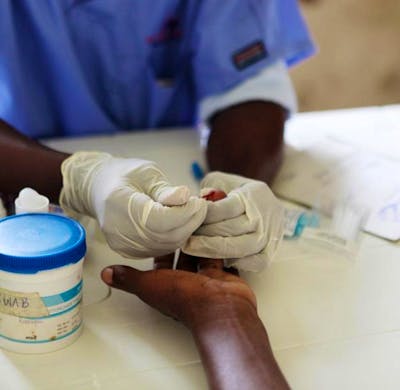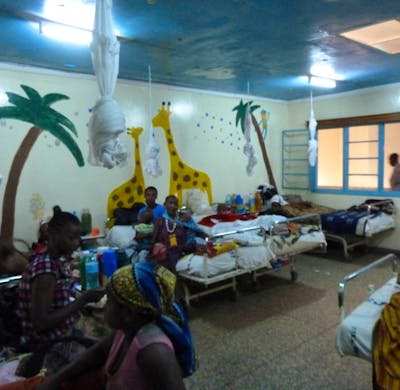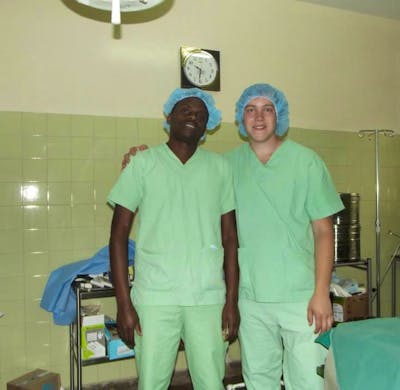About the Program
The Zanzibar Medical Project presents the opportunity to volunteer and assist
in one of the hospitals in Stone Town, Zanzibar. This tropical island off the
coast of Tanzania lives by the seasons, and has a laidback atmosphere you will
definitely enjoy.
Like many African countries Tanzania and Zanzibar struggle with its healthcare system in many ways. Even though
Zanzibar is semi-autonomous it struggles with the same challenges as the mainland of Tanzania. Due to an insufficient
government system, corruption by government officials, inadequate facilities and lacking resources healthcare is
challenging for most of Zanzibar’s people. Medication can be hard to come by and basic services can require long
waiting days to be helped.
Zanzibar, being an island with a 95% Muslim population, faces challenges regarding early arranged marriages and
therefore teen pregnancies, a taboo about HIV/AIDS and women’s health. Healthcare on Zanzibar is also challenging,
as equipment and facilities available are mostly old and outdated and/or not adequate for the needs of the hospitals
and its patients.
Your role as a volunteer will be primarily to assist the medical staff on duty. This can differ depending on what level of
expertise you have, and for students, will be different then for qualified nurses or doctors.
Due to the nature of the work, volunteers need to know that they will be working under supervision, until you have
proven your capabilities to the supervisor who is responsible for your actions at all times. Make an effort to earn their
trust, this will make your volunteering experience so much better.
Accept a challenge; that is why you are coming. Volunteers in the past have delivered babies, taken blood, changed
dressings, assisted with minor surgery and other activities that you would possibly not be involved in if you stayed
back home. It can be challenging, so volunteers with a healthy dose of independence and flexibility will enjoy this
experience of learning how healthcare works in Tanzania.
The hospitals
struggle with challenges such as outdated equipment, shortages of medication,
insufficient or undertrained staff, and a growing number of patients. Extra
help and assistance from volunteer medical students or qualified medical staff
is very welcome and improves the services being offered.
The mission of the hospitals is to provide the best free medical care possible
within the extremely challenging circumstances they have to work with.
The need for volunteers at the hospitals is huge. Next to assistance with the actual work, there is an on-going need for financial support to improve the situation of the hospitals.
The Khaya Medical Project on Zanzibar offers volunteers the possibility to assist in the Government Hospitals as well
as in the smaller privately-run clinics which offer health care to small communities.
It is important to note that qualified medical professionals will only be allowed to practice medicine if certified by the
Zanzibar Medical Council.
Khaya has partnered up with a number of smaller private clinics to allow specialists and doctors to offer their skills.
These clinics are often small and offer general practitioners, dentistry, and a pharmacy all in one place. Here you can
volunteer for up to 1 year once you are certified by the Zanzibar Medial Council. This requires a few forms to be
completed with some additional documentation and a fee of 250 USD. The process takes about 2 weeks, so be sure to
apply well in advance.
Your Role
Your role as a volunteer will be to support the hospitals and work with the
local staff in the different departments. You can assist with HIV/AIDS testing
for pregnant women, vaccinations for children, general care at the different
wards and much more.
Guidance and Supervision
Your stay on Zanzibar will be supervised by our local coordinator. He will look
after you from the start and support any help needed to make this a successful
and rewarding period of volunteering.
You will get general guidance from our volunteer coordinators during your stay on Zanzibar, and more specific daily
guidance during working hours from supervisors which are hospital staff.
Your Khaya coordinator will pick you up, take you to your accommodation and offer a first introduction to Zanzibar.
They will also take you to the project on your first day and look after you during your voluntary period. The
coordinators will help you with all your questions and will provide support when needed. Your part to keep
communication with them on-going and to express your needs or questions is very important.
Within the hospitals, you will be supervised by professionals with extensive experience, who will try to offer the best
guidance of huge work pressure and caseloads. In the beginning you will only be observing until you have earned the
trust of the supervisor and they are comfortable to allow you to work independently. Working with local staff can be
challenging, creating language barriers and different expectations from both parties. It is important to communicate
openly, earn trust and have patience and respect towards the local circumstances.
Extra Costs for Medical Volunteering
Due to the challenging financial situation of the hospitals on Zanzibar, the local government has implemented a compulsory donation of 100 USD per week. This allows them enough finances to supervise volunteers’ activities and coordinate your work. This compulsory donation is not included in the fees and needs to be donated in cash to the hospital upon your arrival on Zanzibar.
PROJECT NEEDS
Any possible gifts and donations provided by volunteers and their network of people are extremely appreciated. Just
keep in mind that medical supplies or equipment should be:
- Useful
- Safe to use and of good quality
- Most current model if possible
- Economically in terms of running costs
- Should have at least one-year shelf life
Please feel free to ask your booking agent for a full list of medical supply needs.
You most likely won’t be alone when volunteering in Zanzibar and meet both local as international
volunteers. We get volunteers from all over the world, from the USA, the Netherlands, Belgium, Germany, the UK and many other countries.
At this project you will most probably have other volunteers around from all over the world. Our
accommodation offers possibilities to host 16 volunteers at any given time.
Safety in Zanzibar
- Ensure that your clothing is modest when you are not on the beach. Women should not
show too much of their legs and chest, and topless sunbathing is really discouraged.
- If you are diving or snorkelling, you may be tempted to collect some pretty shells from
Zanzibar's many coral reefs. Please do not, as this kills
• entire reefs, the devastating effects of which can be seen in the well-trodden areas of the
East African coast. Although there are shell sellers, you are asked not to buy shells from them, as it
simply encourages this harmful industry.
- Zanzibar is an amazingly photogenic place but if you want to take photographs of people,
please ask for their permission first out of respect for them.
- If you are not Muslim do not enter any of Zanzibar's mosques.
- Keep in mind that your safety comes with your own behaviour and looking after your
personal items. Lock your room, if possible, give
• valuables to the coordinators to keep for you and be aware of your surroundings.
- Zanzibar is alluring to many different tourists and many women from the west will find
their African lovers here. Be aware of the smooth-talking beach boys that you will encounter and can
organize everything for ‘free’ for you or very cheap, there usually is a price to pay somewhere down
the line.
WHERE DOES MY MONEY GO?
At Khaya we believe in transparency and openness about where your money goes.
Your fees go to a variety of costs both short term & long term, to cover staff costs, a great volunteer
house, transport but also includes a direct donation to the project.
We believe that the projects we work with need more than just your hands; they need money to
keep their doors open, pay for rent and electricity and so much more. We firmly believe that
donating money, which is part of your fee, helps where the biggest needs are. These donations fund
all expenses of this program and assist us to do what we do.
Also remember that your Volunteering Permit will cost you an additional 200 USD, this is arranged
and paid after your arrival with our coordinators.
Your fees will not only be helpful for the support of the projects but will provide local staff a much needed income. Our way of working is to provide local employment, as your coordinators provided
with a full-time job because of our volunteer projects.
RAMADAN
If you decide to volunteer during this time you need to be aware of the following:
What is Ramadan all about?
Ramadan is regarded as the holiest month of the year for Muslims as it was the month in which the
Quran was revealed to Prophet Mohammad (PBUH) on the night of Laylat Al Qadr, one of the last
ten nights of Ramadan. The annual observance of Ramadan is considered one of the 'Five Pillars of
Islam'. Ramadan is the ninth month of the Hijri (Islamic) calendar.
How long does it last?
Ramadan lasts for one complete moon cycle, which is usually 29 or 30 days. The moon sighting
determines the duration. Nowadays, astronomical calculations have started taking precedence over
the age-old tradition of moon sighting by the naked eye to determine the dates.
How do we know exactly when it starts?
A moon-sighting committee in Makkah, Saudi Arabia, will make an official announcement.
How do you greet each other?
Greet people by saying “Ramadan Kareem”. This roughly translates into “Happy Ramadan”.
How do Muslims observe Ramadan?
Adult Muslims are required to fast from dawn to dusk every day throughout Ramadan. Those who
are ill, elderly, diabetic, pregnant, menstruating, or breast-feeding are not required to fast. Those
who travel or are unwell during the period of Ramadan may fast on different days at a later point.
Children are not required to fast unless they have reached puberty, although many still do out of
choice.
In addition to abstaining from eating, drinking, and smoking, Muslims also refrain from sexual
relations as well as sinful speech and behaviour.
During Ramadan, Muslims pray every night for 30 days, reciting different chapters each day until the
Quran is completed by Eid Al Fitr. This is called the Taraweeh prayer, which is recited after Isha
prayers mid-evening
When do Muslims break their fast?
Fast may be broken at sunset before Maghrib prayers after ‘Azaan’ (call for prayers). This occurs just
after sunset. Dates are traditionally the first food to be eaten each evening. The fast-breaking meal is
called Iftar.
Do non-Muslims have to fast?
No. While Muslims don’t expect non-Muslims to fast as well, it remains important to show respect
and follow basic etiquette in daily behaviour.
Basic Ramadan etiquette:
1. Do not eat, drink, or smoke in public during the fasting hours. This includes chewing gum.
2. Do not dance or play music in public. You may listen to music quietly with headphones.
3. Do not wear inappropriate clothing in public. Dress respectfully. Men should avoid wearing
sleeveless tops, while women should cover their shoulders and knees.
4. Do not swear.
5. Accept gifts, from a simple date to something more exotic, try to politely accept it. Further, if
invited, it would always be an honour to join someone at Iftar.
POLICE CLEARANCE CERTIFICATE
Please note, it is mandatory that you acquire a police clearance certificate for you to be able to
volunteer at our medical project in Zanzibar.
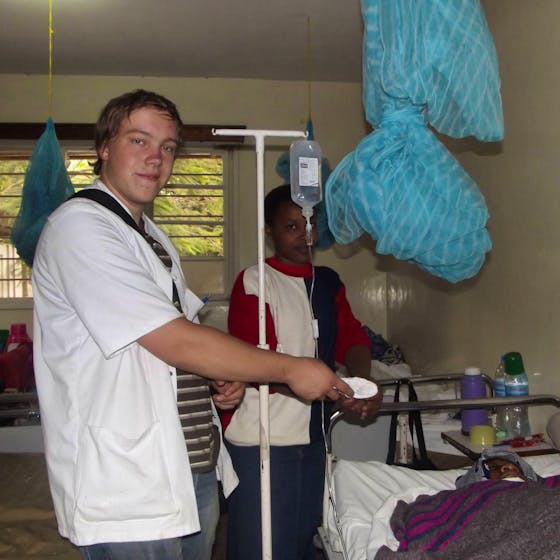
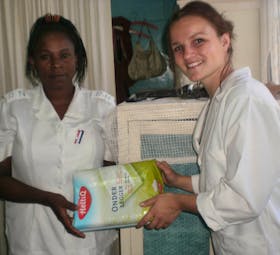
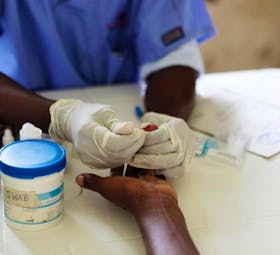
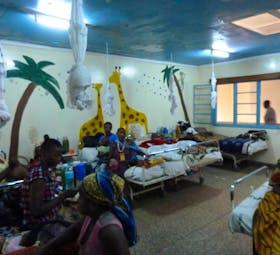

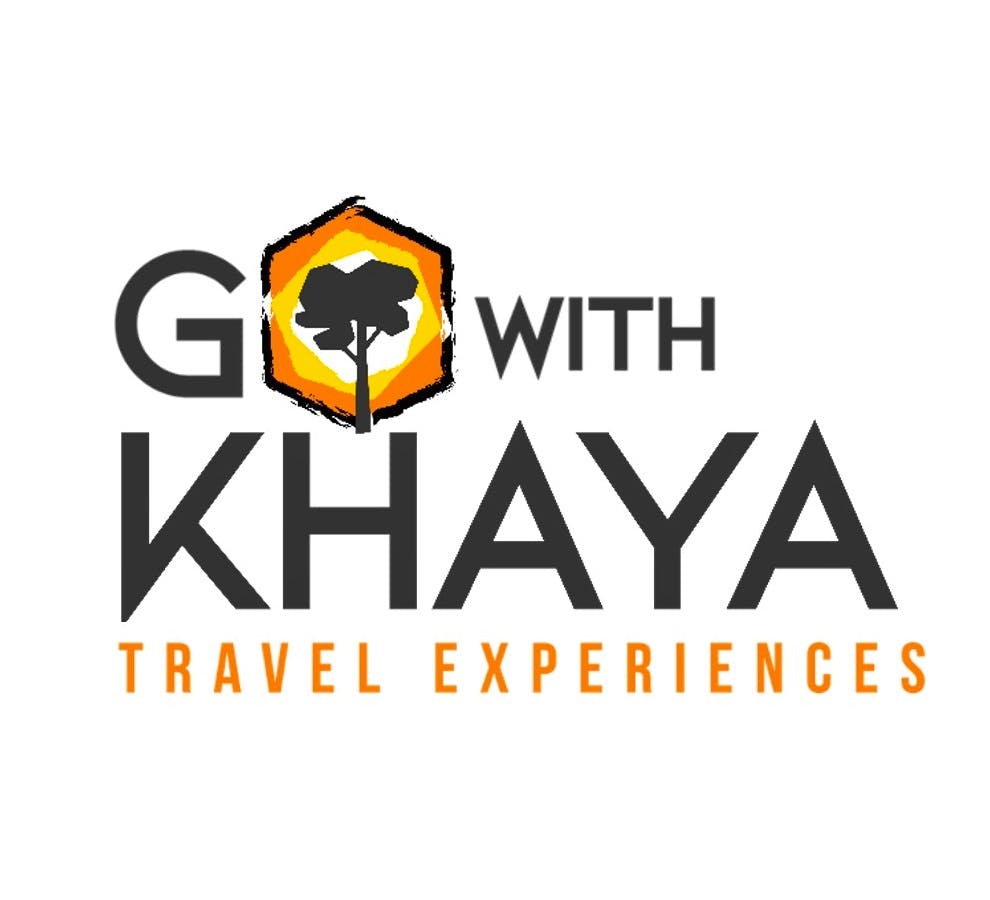

 4.5
4.5

